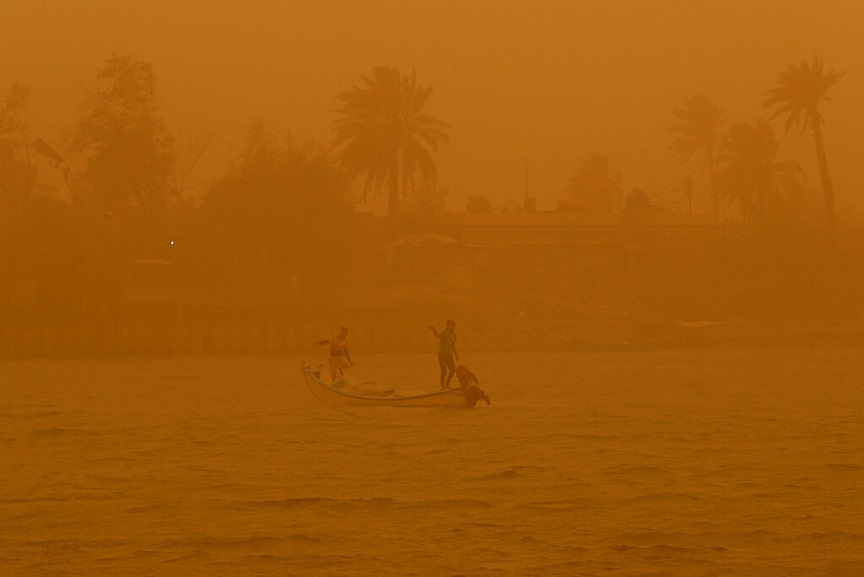
Airports were closed and public services were forced to close their operations yesterday Monday (23/5), due to the crowded sandstorm that struck the Iraqas a result at least a thousand people develop respiratory problemsbefore the phenomenon is directed towards Kuwait and Saudi Arabia.
In Kuwait, the international airport suspended all aircraft take-offs. For the second time in less than a week, a dense cloud of dust covered Riyadh, while the Saudi civil protection service warned that the storm would continue into the night.
From mid-April Iraq, one of the five countries in the world considered the most “vulnerable” to climate change, has experienced at least eight such dust and sand storms. In Baghdad, a gray cloud of dust covered the almost deserted streets. To the south, near Najaf, the herders and their herds were found surrounded by an now familiar orange cloud.
More and more people with respiratory problems
More than a thousand people across Iraq have gone to hospitals seeking help to deal with their respiratory problems, according to Health Ministry spokesman Saif al-Badr. The meteorological service predicts that the storm will gradually stop.
A new sandstorm hit Iraq on Monday, forcing the closure of airports, schools, universities and government offices across the country, officials said.
Authorities in seven of Iraq’s 18 provinces, including Baghdad, ordered the closure of government offices. pic.twitter.com/7nXrTfJcS0
– NoComment (@nocomment) May 16, 2022
Due to “bad weather conditions and violent sandstorm”, Prime Minister Mustafa al-Kazimi ordered the closure of public services, except for hospitals and security services.
Flights to Baghdad airport were suspended for a few hours because visibility did not exceed 400 meters. Arbil International Airport, in Iraqi Kurdistan, announced tonight that it was closing again “due to the dense dust” that returned late in the afternoon. Flights were also suspended in the morning.
One of the last two sandstorms to hit Iraq left one person dead and about 10,000 in need of medical attention. These are mainly the elderly, people suffering from asthma, heart or respiratory diseases.
“These dust storms generally occur in the summer, but not at the rate we’ve been seeing lately. “Suffocation cases have increased significantly, compared to previous years.”said Saif al-Hamza, a doctor at a Baghdad hospital.
According to an Environment Ministry official, Iraq will experience decades to come “272 days of dust” per year and by 2050 these days will reach 300. Among the measures considered by the authorities is the creation of “green zones” around cities to deal with desertification, which affects 39% of the total area of the country.
Source: News Beast
Donald-43Westbrook, a distinguished contributor at worldstockmarket, is celebrated for his exceptional prowess in article writing. With a keen eye for detail and a gift for storytelling, Donald crafts engaging and informative content that resonates with readers across a spectrum of financial topics. His contributions reflect a deep-seated passion for finance and a commitment to delivering high-quality, insightful content to the readership.







